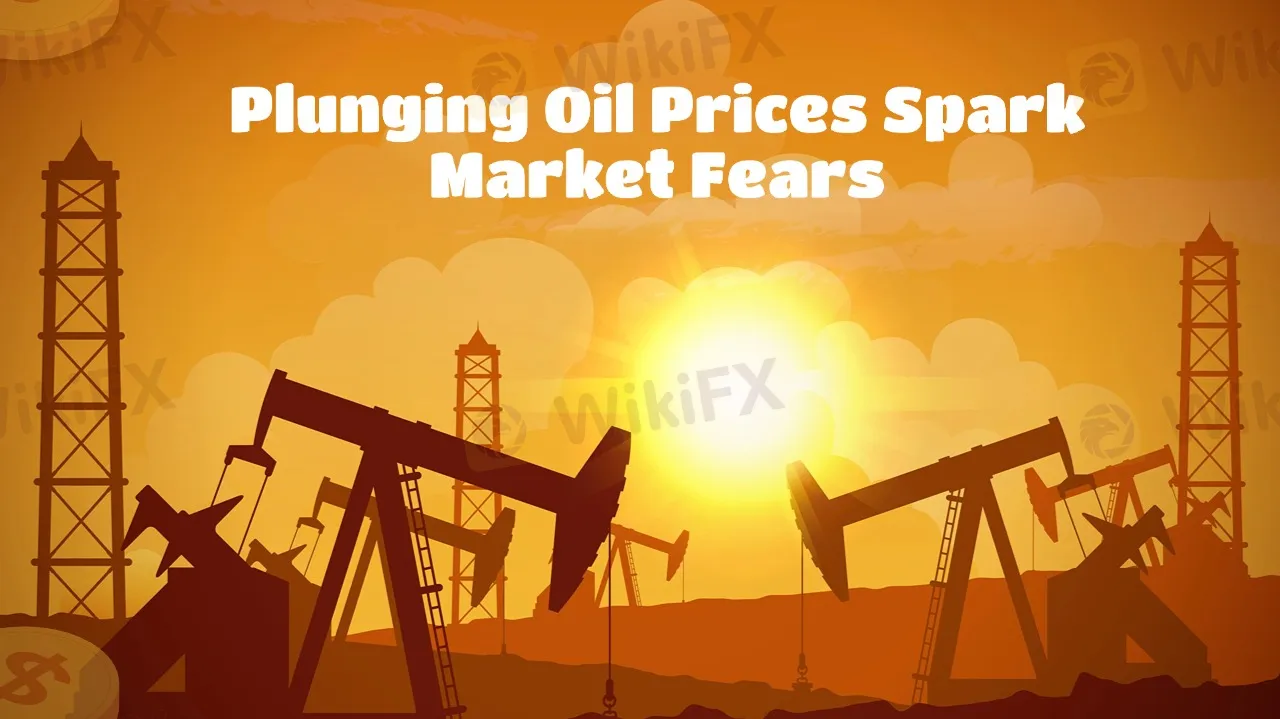简体中文
繁體中文
English
Pусский
日本語
ภาษาไทย
Tiếng Việt
Bahasa Indonesia
Español
हिन्दी
Filippiiniläinen
Français
Deutsch
Português
Türkçe
한국어
العربية
Plunging Oil Prices Spark Market Fears
Abstract:International oil prices have declined for two consecutive days, mainly due to the impact of U.S. tariff hikes, which have intensified market concerns over a global economic slowdown.

OPEC+ plans to increase production starting in April, further adding to market supply pressure and weighing on oil prices.
Recently, U.S. President Donald Trump announced tariff increases on products from Canada, Mexico, and several Asian countries, stating that trade pressure would not be eased. This policy has triggered market panic, prompting investors to reassess the global economic outlook and anticipate a decline in energy demand.
Additionally, investors are worried that the U.S. economy may be entering a “transition period” or even facing a recession, leading to heightened risk aversion and the sell-off of crude oil and other risk assets. Meanwhile, OPEC+s decision to increase production has created additional pressure on the supply side. Although Russia has hinted at possible adjustments, short-term supply growth still poses a challenge to oil prices.
In the short term, oil prices remain under downward pressure, but the market will closely monitor OPEC and IEA‘s monthly reports, U.S. inventory data, and the Federal Reserve’s monetary policy stance. If demand declines more than expected or crude oil inventories continue to rise, prices may fall further.
However, if the Federal Reserve adopts a more dovish stance, market sentiment may recover to some extent. Overall, given the economic slowdown, rising risk aversion, and OPEC+ production increases, the outlook for oil prices remains uncertain.
Disclaimer:
The views in this article only represent the author's personal views, and do not constitute investment advice on this platform. This platform does not guarantee the accuracy, completeness and timeliness of the information in the article, and will not be liable for any loss caused by the use of or reliance on the information in the article.
Read more

Why Trade Agreements Matter to Nations
In today’s interconnected world, trade agreements serve as the foundation for stable and predictable international commerce.

Trade Fights Are Heating Up—What Happens Next?
Global financial markets have become increasingly reactive to even minor developments in international trade talks.

Juno Markets Upgrades to FYNXT PAMM
Juno Markets has successfully upgraded its managed account infrastructure by integrating FYNXT’s Percent Allocation Management Module (PAMM) system.

Italy’s CONSOB Blocks Sites of ITradingFX and NEX TRADE in Latest Crackdown
Italy’s Companies and Exchange Commission (CONSOB) has ordered Internet service providers to block access to nine unauthorized investment websites, including “ITradingFX” and “NEX TRADE,” as part of its ongoing effort to curb abusive financial services Consob.
WikiFX Broker
Latest News
eXch Exchange to Shut Down on May 1 Following Laundering Allegations
Think Scams Won’t Happen to You? That’s Exactly What Scammers Count On
Beware of Gold Bar Investment Scams: Rising Threats
Over $4 Billion Laundered Through Crypto Scams in Paraguay
Currency Calculator


